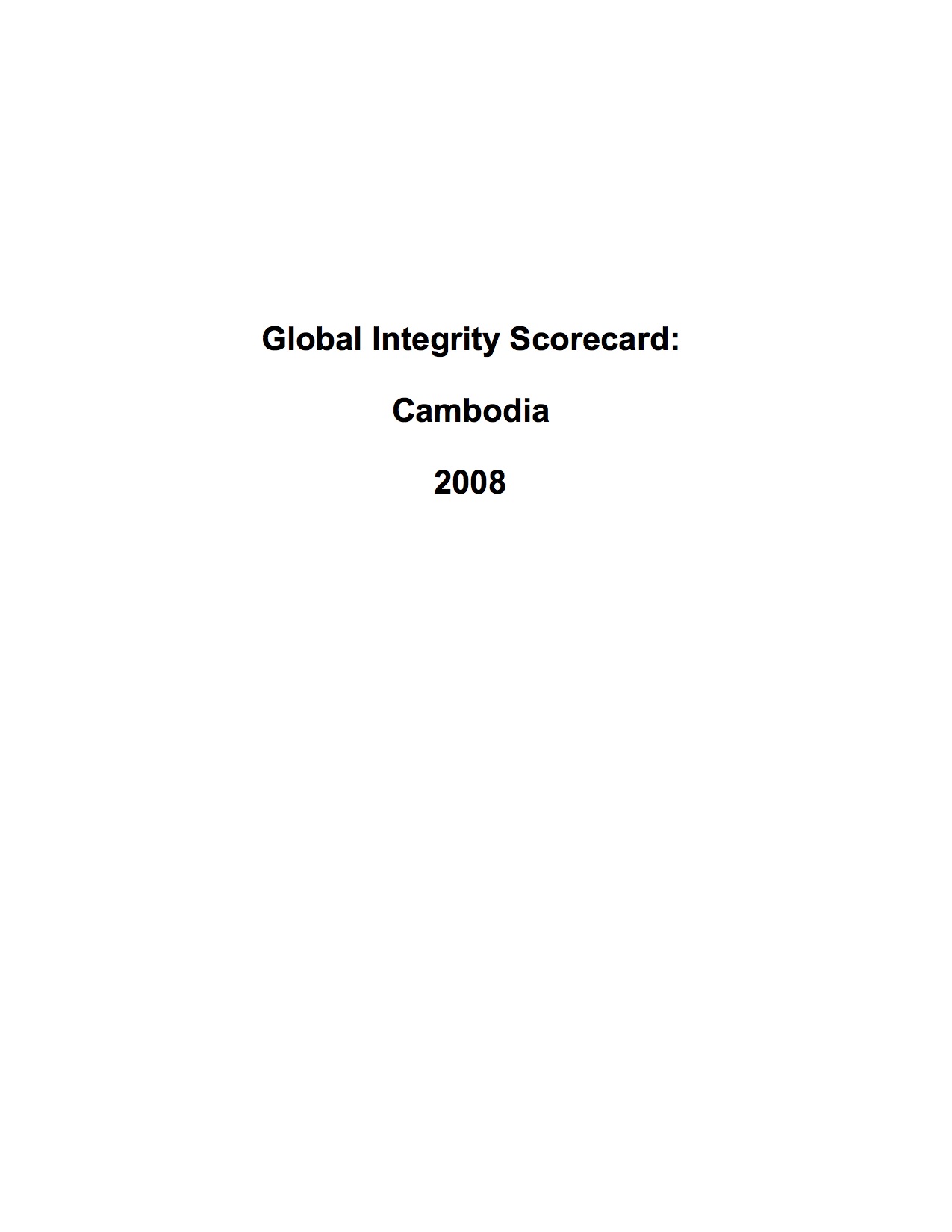
Global Integrity Scorecard: Cambodia 2008
Publication Year: 2008 / Sources: Global IntegrityShortly after the ruling Cambodian People’s Party (CPP) won the July elections by a landslide, a 51-year-old farmer named Cheam Ny stood in protest at the opposition Sam Rainsy Party (SRP) Headquarters. His goal: the end of corruption in Cambodia.
Like many Cambodians that day, he complained that the SRP lost seats in the National Assembly because of rampant election fraud. He cited anecdotal evidence consisting of the names of voters that had allegedly been deleted from rolls, and the falsification of documents allowing unregistered CPP supporters to vote.
To Cheam Ny, the election fraud was part and parcel of a much larger and endemic culture of corruption — a culture that seems unlikely to change without a change in the government itself. “The CPP officials have committed corruption so they can’t eliminate corruption,” argues Ny, who is calling for a reelection to right the wrongs of the past.
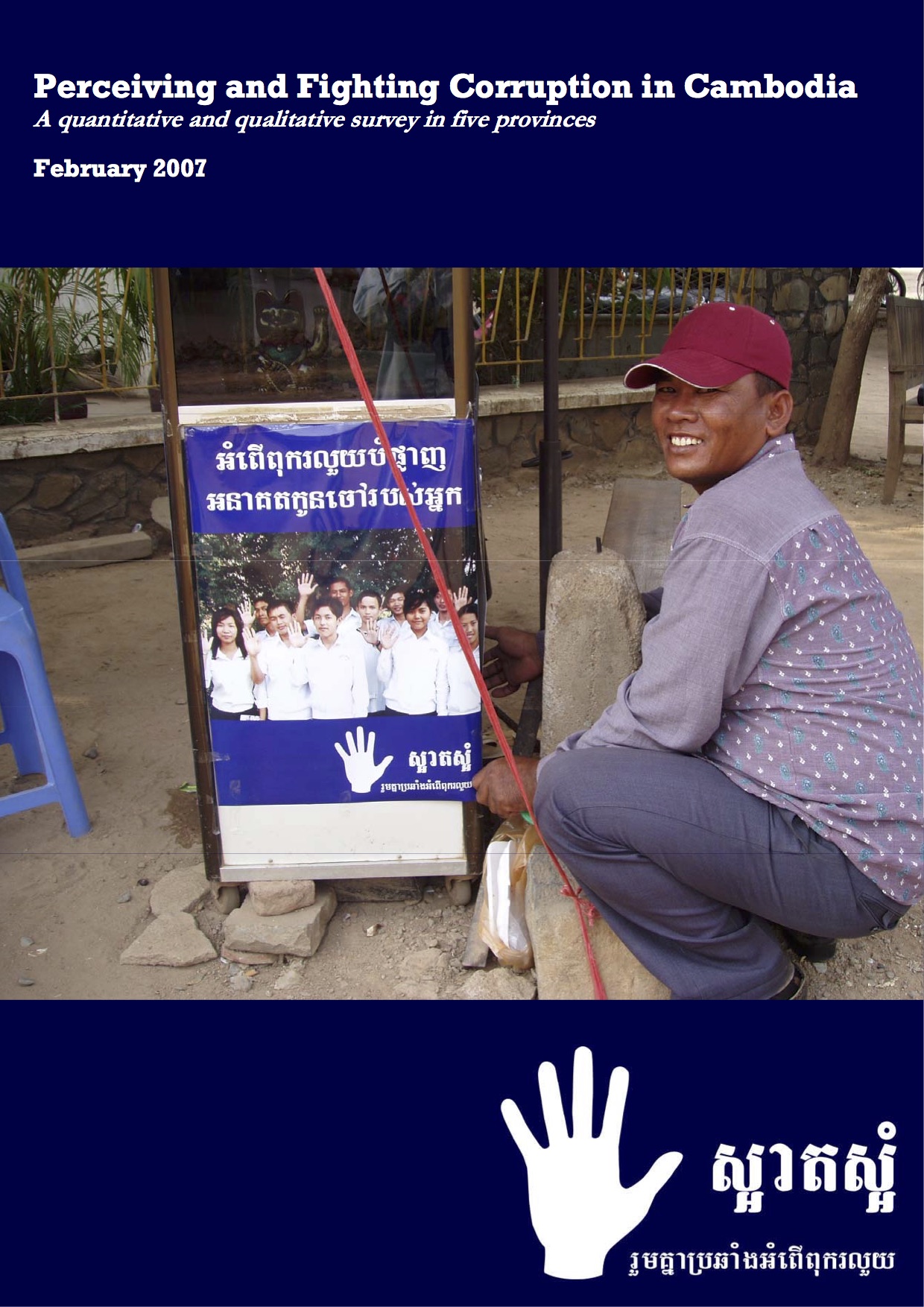
Perceiving and Fighting Corruption in Cambodia
Publication Year: 2007 / Sources: CleanThe aim of this study was to describe how Cambodians perceive corruption in their country.
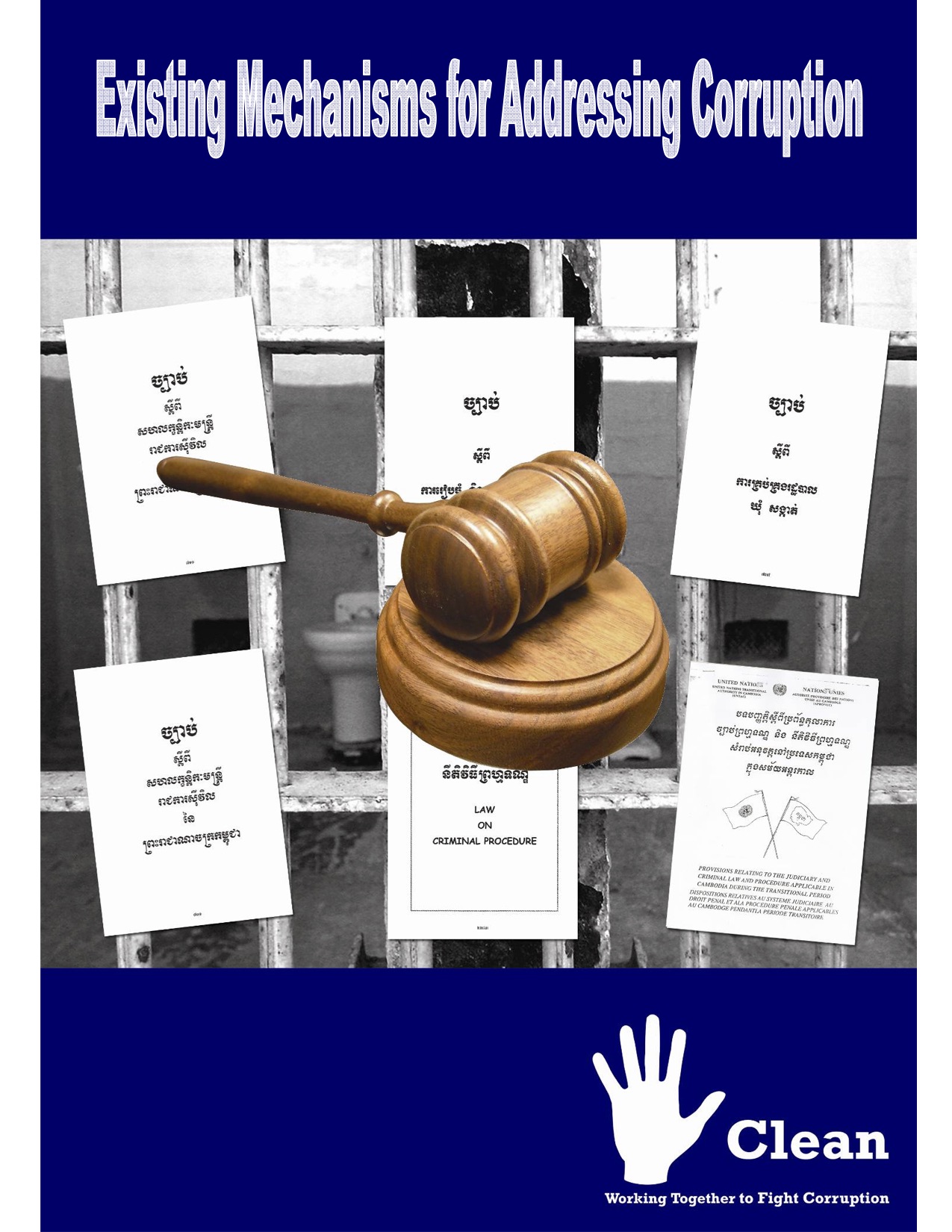
Existing Mechanisms for Addressing Corruption
Publication Year: 2007 / Sources: CleanOverall, corruption in Cambodia remains a pervasive problem. However, there are some signs of improvement, like the recent prosecutions of low-ranking government officials, and the creation of the Accountability Working Groups. These bright spots represent opportunities for donors and civil society to contribute to combating corruption by supporting these mechanisms. More generally, there is also much that donors and civil society can do to improve access to information on corruption. While access to information for combating corruption will not solve Cambodia’s corruption problems on its own, it is one necessary component of the solution. Moreover, it is a component that donors and civil society are well placed to support.
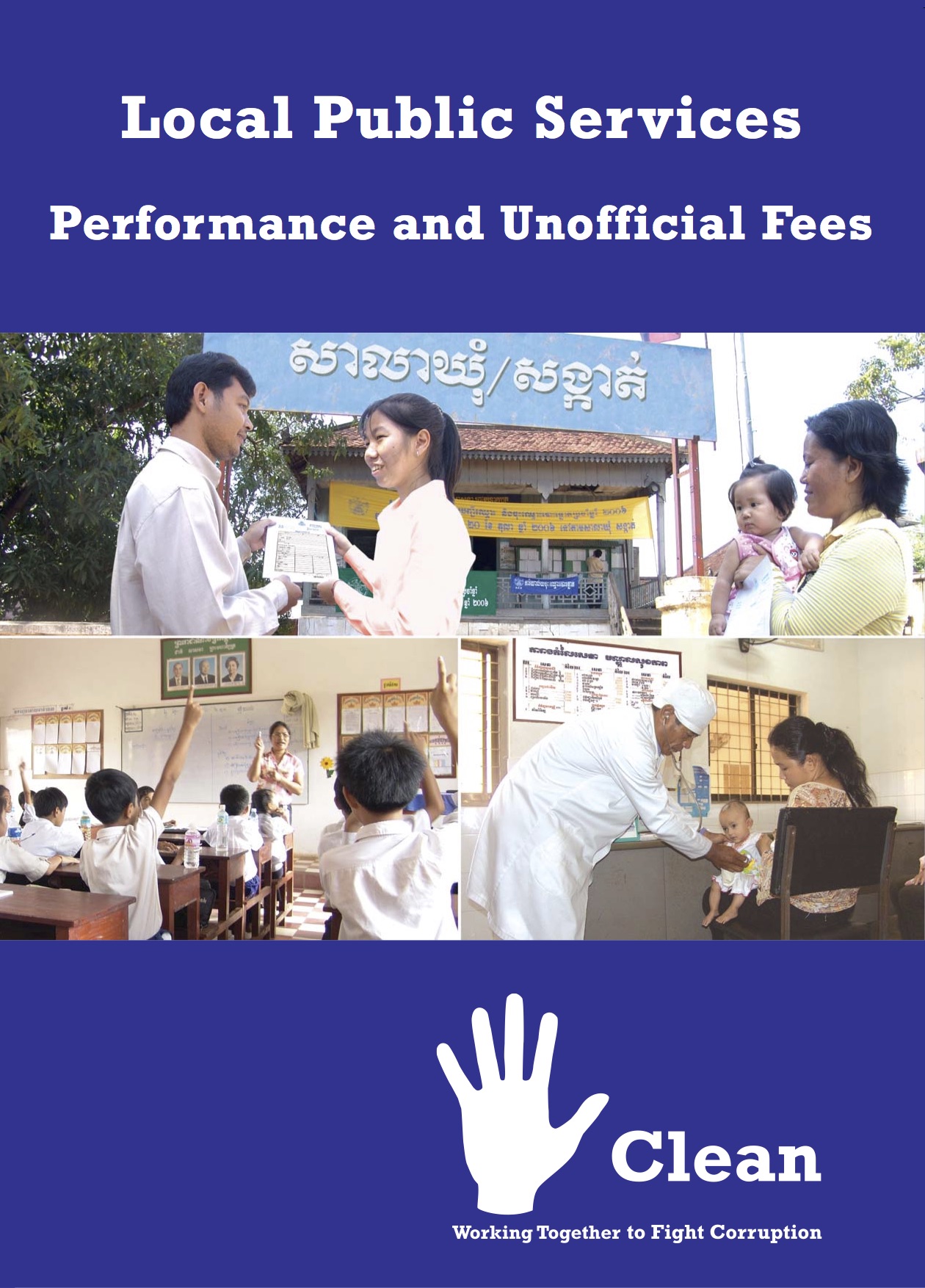
Local Public Services Performance and Unofficial Fees
Publication Year: 2006 / Sources: CleanPublic services are crucial for the Government to implement its strategies and to provide the appropriate services to its citizens. Providing for the basic needs of local communities, the local public service mechanism needs to be enforced to enhance local governance and promote social and economic welfare for the population. In the context of promoting good governance, corruption and systemic bribery in public services have been repeatedly identified as major constraints on Cambodia’s development process. Government, donors and civil society have made concerted efforts to search for optimal strategies to improve Cambodia’s current situation. As a result, some Government institutional reforms have been noticeably successful, especially the decentralization and deconcentration reforms.
This exploratory study was conducted by the Economic Institute of Cambodia (EIC) under the auspices of DANIDA and PACT Cambodia with the objective of finding out where commune level service provision directly affects households’ livelihoods and the current reality of unofficial fees in order to find the best opportunities for institutional reforms.
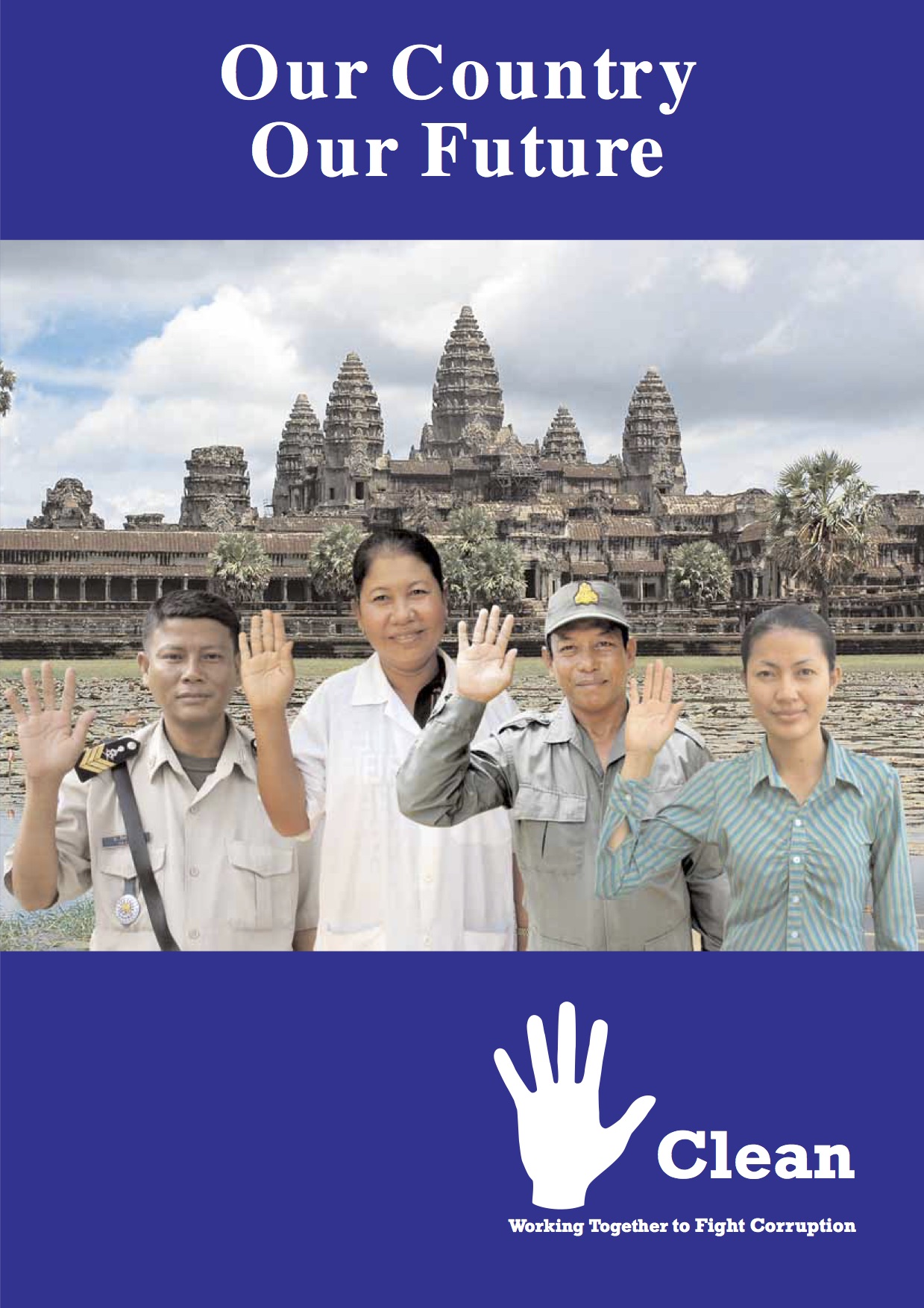
Our Country Our Future
Publication Year: 2006 / Sources: CleanThe rights of all citizens in Cambodia are determined by the constitution. All citizens have the equal right to access government services such as education, healthcare, and social security. It is the duty of the government and all public servants to serve the people of Cambodia and treat them in a fair and equal way. Corruption undermines the rights of every Cambodian by preventing the government and public servants from serving the people equally. Corruption destroys the trust of Cambodian citizens in the government and public servants, and in each other. Corruption is a widespread problem, but this does not mean that it is viewed as morally or socially acceptable. There is nothing in our culture that makes corruption a fact of life that we cannot change. This handbook looks at different types of corruption and how it affects our families and communities, as well as the steps that we as public servants can take to reduce corruption.
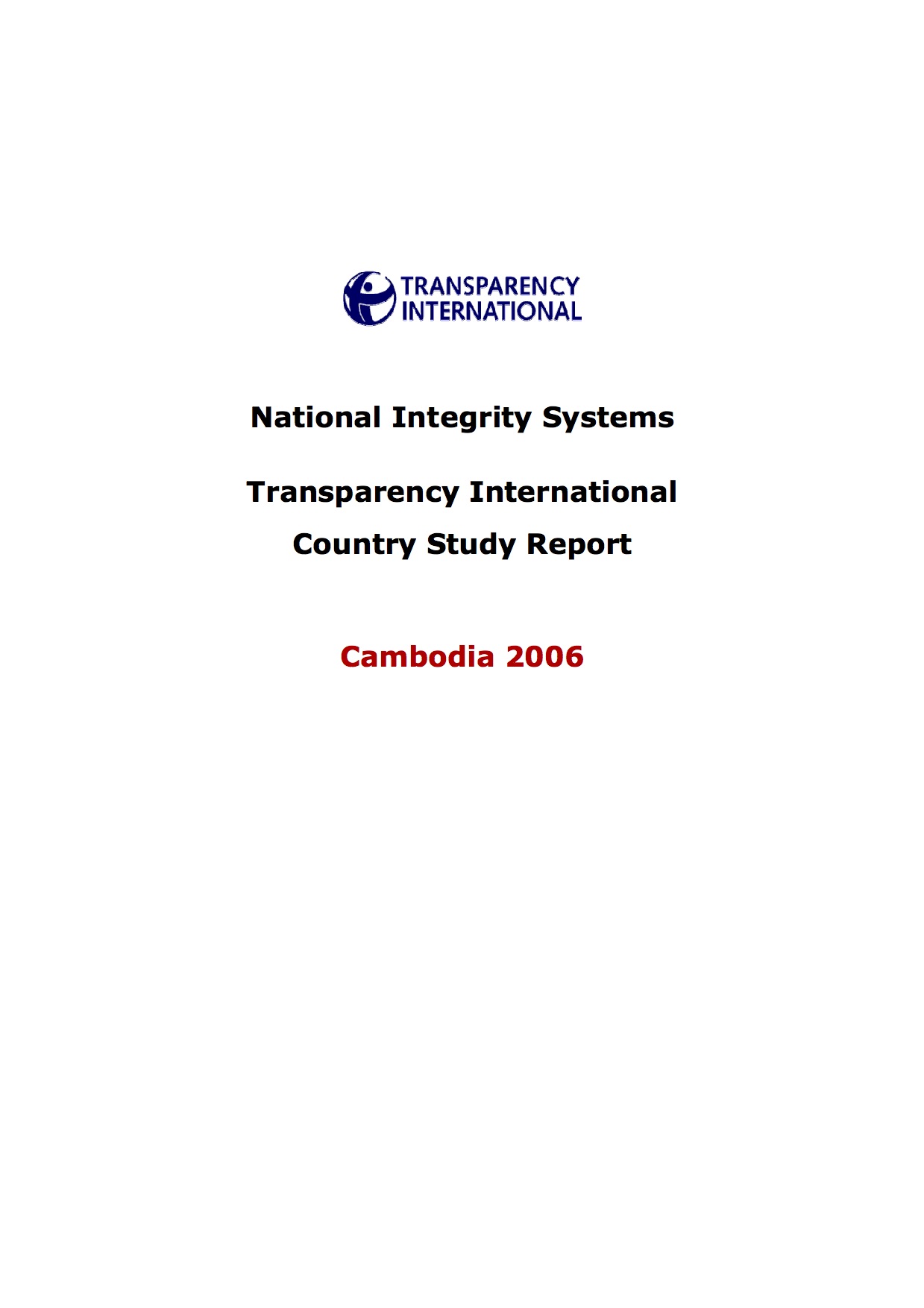
National Integrity Systems Transparency International Country Study Report
Publication Year: 2006 / Sources: Transparency InternationalThe National Integrity System encompasses the key institutions, sectors or specific activities (the ‘pillars’) that contribute to integrity, transparency and accountability in a society. When it functions properly, the NIS combats corruption as part of the larger struggle against abuse of power, malfeasance and misappropriation in all its forms. Strengthening the NIS is about promoting better governance across all aspects of society.
The concept of the NIS has been developed and promoted by Transparency International as part of TI’s holistic approach to combating corruption.1 While there is no blueprint for an effective system to prevent corruption, there is a growing international consensus as to the salient institutional features that work best to prevent corruption and promote integrity. The country studies are based on an assessment of the quality of institutions relevant to the overall anti-corruption system.
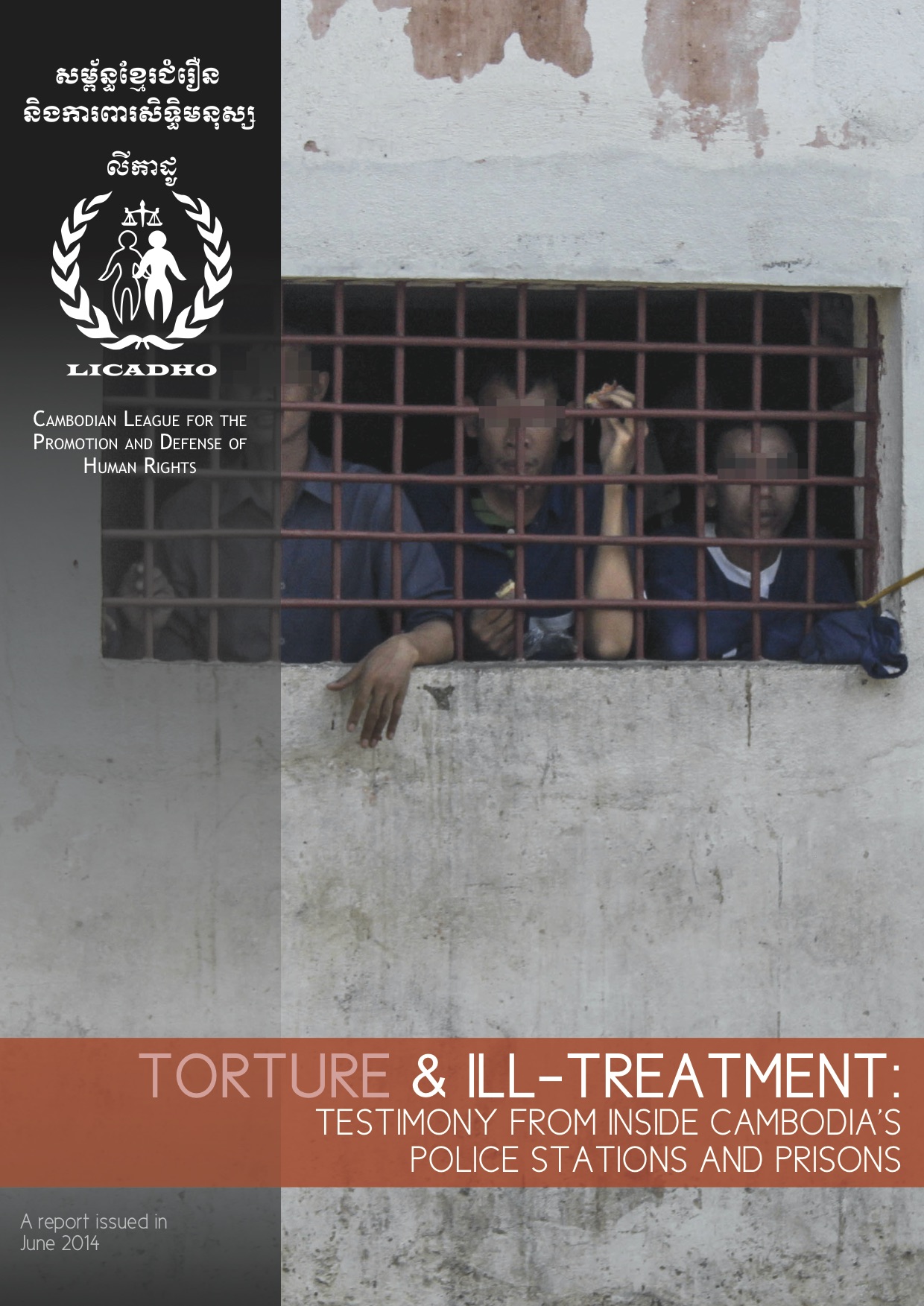
Torture & Ill-Treatment: Testimony from Inside Cambodia’s Police Stations and Prisons
Publication Year: 2014 / Sources: LICADHOCambodia ratified the Optional Protocol to the United Nations (UN) Convention against Torture and Other Cruel, Inhuman or Degrading Treatment or Punishment (OPCAT) in March 2007. Among other things, this protocol requires State Parties to establish an independent National Preventative Mechanism (NPM) within one year of ratification. The primary purpose of NPMs is to monitor and prevent torture and ill-treatment in places of detention. More than seven years after the ratification, Cambodian authorities have failed to establish such a body. Instead, an inter-ministerial committee made up of various government officials was created. This body is neither independent nor capable of performing the functions of an effective NPM. Moreover, since its establishment in 2009, it has done very little of actual substance.
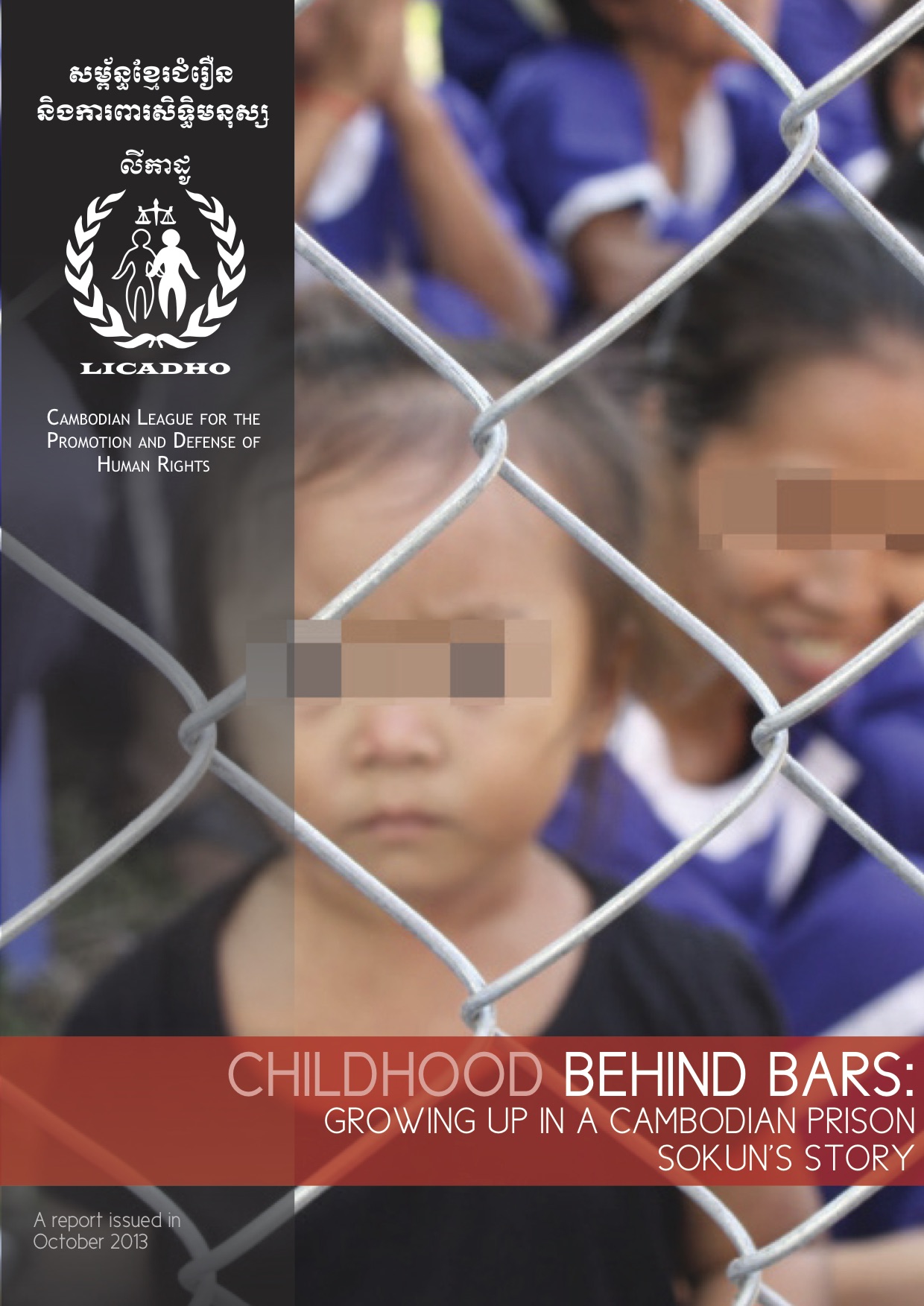
Childhood Behind Bars: Growing Up in a Cambodian Prison
Publication Year: 2013 / Sources: LICADHOIn Cambodia today there are many young children living in prison with their mothers yet there is little understanding amongst authorities and society at large of the short and long term impact of prison life on children. In this, Cambodia is not alone – to date there are only a few studies of the effects on children who spend their early years behind bars.
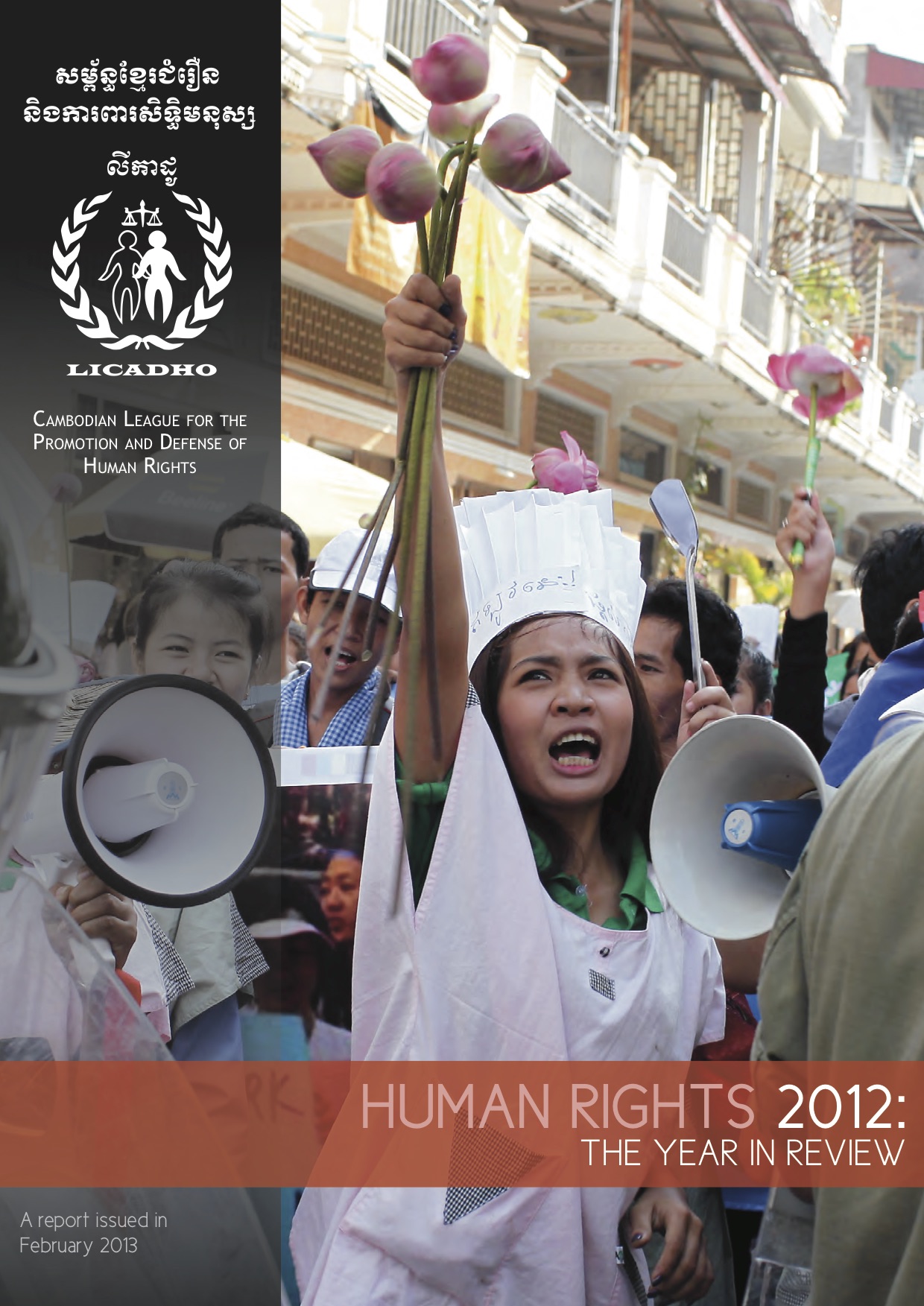
Human Rights 2012: The Year in Review
Publication Year: 2013 / Sources: LICADHOThe human rights situation in Cambodia began 2012 teetering on the edge of a precipice, and by the end of the year had fallen off the cliff.
The sheer volume of shocking turns makes it difficult to choose where to begin a summary of 2012: Independent radio station owner Mam Sonando was sentenced to 20 years in prison on politically-motivated charges. The country’s most prominent environmental activist was shot dead in the for- est while investigating illegal logging. A journalist working on logging is- sues was murdered in Ratanakiri province. A town governor opened fire on protesting garment workers and has yet to spend a day in prison. And 17 leaders from Phnom Penh communities facing eviction spent time in prison.
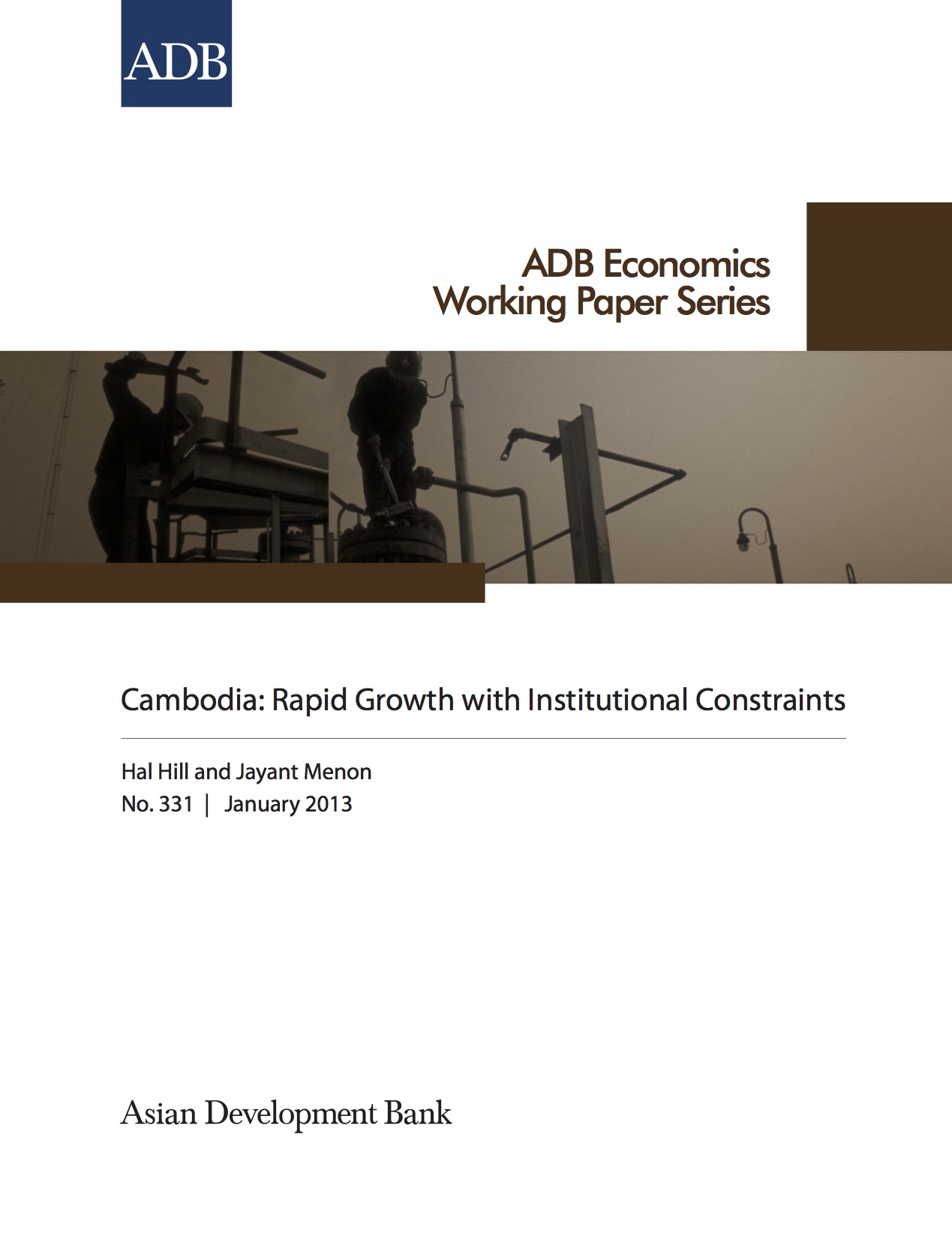
Cambodia: Rapid Growth with Institutional Constraints
Publication Year: 2013 / Sources: Asian Development Bank (ADB)This paper examines Cambodia’s socioeconomic development since the early 1990s peace settlement. The country’s economic growth has arguably been the fastest among post-conflict societies, driven by the credible restoration of peace and security, large public and private capital inflows, economic openness, reasonably prudent macroeconomic management, and a dynamic, integrating neighborhood. A legacy of history and small size is that the government has limited policy space, although this has not necessarily retarded economic development. We also highlight some key challenges, including rising inequality, uneven spatial development, weak institutions, and high levels of corruption. Looking forward, we highlight the importance of strengthening supply side capabilities, broadening the benefits of growth, and developing stronger institutions and property rights.
